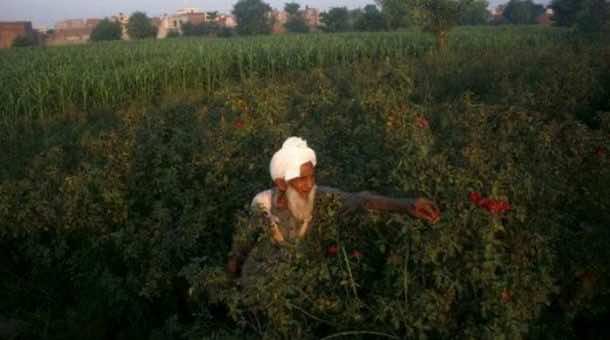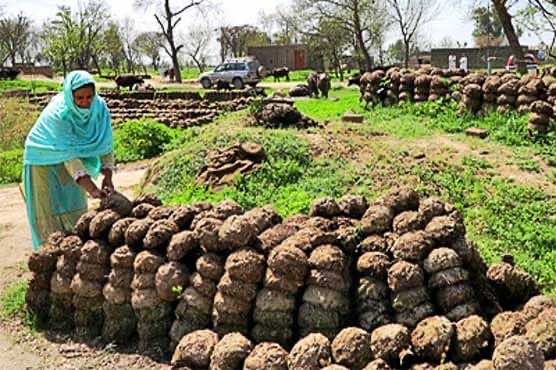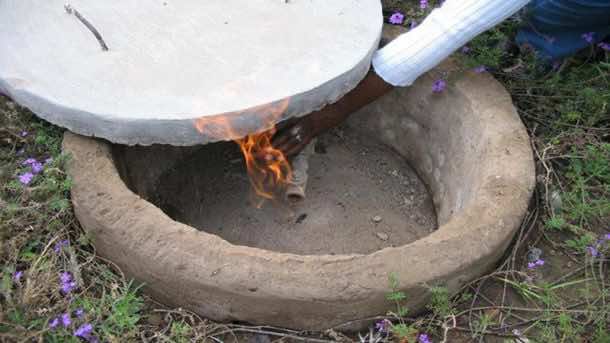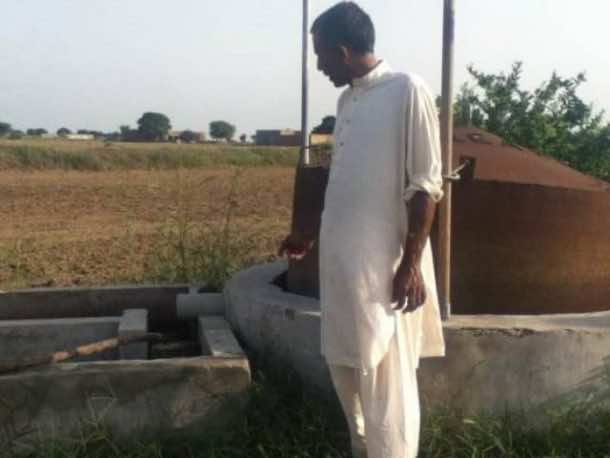The 43-year-old farmer Mujahid Abbasi from Fateh Jhang (Pakistan), the Punjab provincial government project of providing subsidies on the biogas equipment has proven to be a great blessing.
Every year, 288 million liters of diesel, worth 30 billion rupees is consumed by the farming sector. The substitution of biogas in place of diesel as a primary fuel has brought significant and health benefits for Abbasi and other beneficiaries of the program.

40 cubic meter gas is daily produced using the excrement of the 30 buffaloes owned by Abbasi. The power generated is sufficient to keep his irrigation pump operational for up to 6 hours while keeping the cooking stove alight. Each day, he saves around 1000 to 1200 rupees ($10 to $12).
Using the money saved over the past one year, Abbasi has planted seasonal vegetables on the previously unused five hectares of land. The same money was spent on the 13 liters of diesel consumed daily by the 20 horsepower engine to operate the groundwater pump.
“This is a brilliant saving. This means additional income of $1,150 for me annually. It has helped improve our family’s economic well-being.”
Drawing inspiration from Abbasi, 20 other farmers have also installed biogas systems to run their ground water pumps. Naeem Shah, a vegetable cultivator, uses the residual slurry from the biogas production as a fertilizer. Shah used to buy chemical fertilizer for the 19 hectares of land that cost him $850 annually.

This practice of using organic fertilizers has also reduced the groundwater contamination by the injection of the chemical substances.
“The organic fertilizer from the biogas plant is an economic blessing for me.”
The $67 million project of the provincial government aims to switch 100,000 groundwater pumps used for irrigational purposes, from diesel to biogas by the end of 2017.
The Punjab agriculture minister explained that the objective of this program is to enhance the productivity of the land by improving the availability of water and encouraging the farmers to opt for the bio-fertilizers. The project offers the farmers half of the conversion costs, amounting to Rs. 200,000 to 400,000 ($1900-$3800) for each tube well.

The primary recipients of these subsidies are the farmers with small agricultural lands, and lower incomes. The program will significantly reduce the import costs accumulated by the diesel as well as the environmental pollution.

More than 39% of annual carbon emissions in Pakistan are attributed to the agriculture sector. With more than 1.1 million operational irrigational pumps across the country, 6% annual increase in the carbon emission rate is anticipated. The conversion to the biogas will reduce the carbon footprint of the sector by 5% or more.


